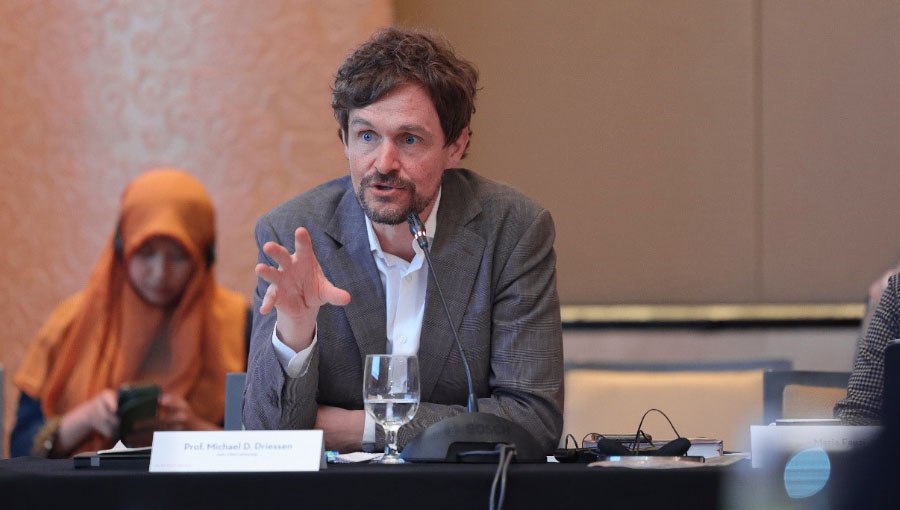Annual Baccalaureate Aperitivo Honors Professor of the Year Mary Merva
On Sunday May 13th, the Guarini Campus’s beautiful Lemon Tree Courtyard played host to the Third Annual Baccalaureate Aperitivo, an occasion in which John Cabot University graduates and their families meet with faculty and members of the community prior to the Commencement Ceremony.
On a warm yet pleasant evening, the Aperitivo began with brief speeches from JCU President Franco Pavoncello and Chairman of the Board of Trustees Joseph Hagan. Both praised the quality of the students, noting how this year’s group of graduates will go on to excellent graduate programs, which also shows the superb work put in by the faculty.
After that, Professor of History Luca de Caprariis introduced the Class of 2012 Professor of the Year, Vice-President and Dean of Academic Affairs Mary Merva. Professor Merva, who has been teaching economics and finance for over 25 years, has her doctorate in Economics from Rutgers University and is a CFA charter holder, a globally recognized mark of distinction for investment professionals.
Professor Merva started off with the story of the year she spent teaching Economics in Communist China during the 1980s, talking about the difficulties she encountered, but also the stimulating discussions she had with many of her students there.
She then went on to talk about China’s exchange rate policy, which has been an important factor in their export-driven growth over the past two decades. Stressing the importance of critical-thinking to a liberal arts education, Professor Merva posed a simple policy question to the audience: should China revalue its currency? She suggested we consider this from a different perspective, given that it was Mother’s Day, and asked: “Do we want children to survive past the age of two?”
China’s exchange rate policy has contributed to the staggering growth experienced by the country over the past 25 years, lifting over 600 million people out of poverty. She noted, however, that while the Chinese economy ranked as one of the world’s biggest economies, its per capita gross domestic product ranks it at around the 120th position and an estimated 200 million of the Chinese population still lives below the extreme poverty line of $1.25 a day. But, when framing the question around child poverty, this export-driven growth has increased the life expectancy of Chinese children, giving an additional layer of human context to a discussion that focuses primarily on economic and political controversies related to the Chinese under-valued currency.
Using this example, she highlighted the role of a professor in guiding students to reflect on a more comprehensive view of the world, rather than to provide them with the “correct” answer. She urged us not to forget this immeasurable aspect of what a university provides: on-going, open, intellectual exploration. Her speech was dedicated to the many professors and students at universities who are unable to exercise academic freedom.





